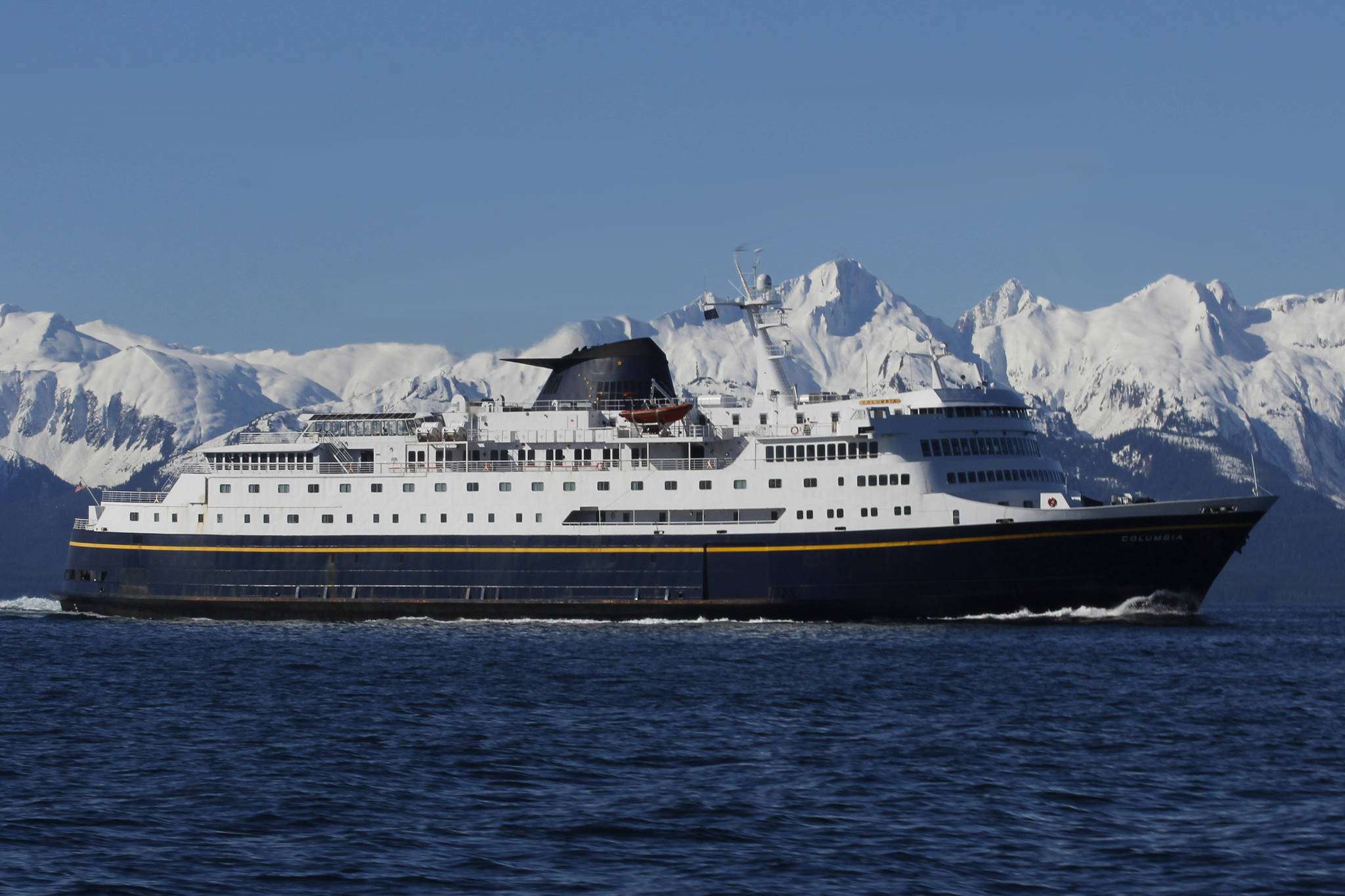There were very few surprises in the operating budget the Alaska Legislature passed Monday, including a cut of $38 million to the Alaska Marine Highway System.
Sen. Bert Stedman, R-Sitka, said on the Senate floor that the cut to the ferry system amounts to $38 million from the current fiscal year’s budget, less than the $44 million in cuts the Senate Finance Committee proposed earlier this session.
According to Legislative Finance Division statistics, funding for the system in this fiscal year is $180.1 million, and the conference committee’s budget for this coming fiscal year is $142.2 million.
Dunleavy’s budget proposed totally cutting funding to the ferry system starting Oct. 1 of this year, and proposing a $98 million overall cut in the system for the fiscal year. Southeast Conference Executive Director Robert Venables said in an interview Tuesday that there’s a feeling that the ferry cuts could have been much worse.
“Our disappointment is tempered by the alternative that was presented in February by the governor,” Venables said. “How do you get excited about that ($38 million) number? You compare it to zero.”
Dunleavy can still veto parts of the Legislature’s budget, so there’s still a possibility Dunleavy rejects the Legislature’s AMHS funding. In a quest to dramatically curb state spending, Dunleavy and those in his administration have identified the AMHS as an inefficient system that is costing the state too much money.
[Amid concerns about ferries’ future, hundreds show up to greet new ship]
Venables said in an interview Tuesday that it’s hard to predict just what those impacts will be without knowing what the ferry schedule will be this offseason. The Department of Transportation and Public Facilities is tasked with putting together a schedule before the drop in funding takes effect Oct. 1.
“They’re the agency that will be given the budget number, so they have to figure out how to survive the year on that number,” Venables said. “I know they’re already working on scenarios, and the Marine Transportation Advisory Board will schedule a meeting in the near future.”
The cuts will undoubtedly result in a drop in service, state officials and experts have said.
Mary Siroky, the DOT&PF deputy director, told the Empire recently that the ferry runs that bring in the most money would get the most service this winter. The most lucrative runs are the ones from Bellingham, Washington, she said. The runs to villages including Angoon or Hoonah are not as profitable, she said.
[Doom for the fast ferries: Two more go up for sale]
The state has contracted with Northern Economics to do a study into the best way to move forward with the ferry system. The other bidder, MAP Consulting LLC, submitted a lower bid but was passed over, the Associated Press reported earlier this year. MAP Consulting is challenging the bid, according the report.
There have been numerous studies over the years on making the ferry system more efficient, including a current AMHS Reform Project that has considered solutions in the past two and a half years including running the highway system as a public corporation. Southeast Conference has been conducting that reform study, and Venables said the process of taking money away and then figuring out what to do with that money seems backwards.
“In my perfect world,” Venables said, “you would look for the plan first, and then cuts.”
• Contact reporter Alex McCarthy at amccarthy@juneauempire.com. Follow him on Twitter at @akmccarthy.

